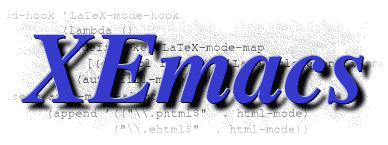
|
|
|
- Mailing lists
- Status of Services
- Near Future
- History of XEmacs
- XEmacs vs. GNU Emacs
- Screenshots
- Sites Created With XEmacs
- Year 2000 Statement
- Who Wrote XEmacs?
- XEmacs Contributors
- Website
Unicode internal encoding
Stephen J. Turnbull <stephen@xemacs.org>
The traditional Mule leading byte representation leads to a number of problems. It conceals difficulties in the implementation of display and I/O streams because the internal representation is very close to the ISO 2022 family, the most common external coding system. (ISO 2022 can be considered a superset of ISO 8859, and is used by most multibyte encodings, e.g. for East Asian languages, as well.) It also tends to lead to bugs in autosave files and so on. A Unicode internal representation would alleviate both of these, and be directly interchangeable with many external programs as well. ``UTF-2000'' refers to the implementation developed by Tomohiko Morioka, likely to be a source of much code.
Status
UTF-2000 (Unicode as internal encoding). I've been puttering away at this, but as maintained by Morioka, it's a moving target and a research vehicle, not a production design. Not ready for prime time.
Open bugs
None.
Other open issues
None.
Discussion
None.
Closed bugs
None.
Site content repository: Primary mirrors: |
This page is part of the XEmacs website
<https://www.xemacs.org>
Contents copyright © 2000 -- 2017; all rights reserved. Missing links, inquiries about implementation, kudos to: webmaster@xemacs.org Discussion of XEmacs features, installation, problems: XEmacs mailing lists This page last modified Fri Mar 3 20:04:28 2017 UTC. |